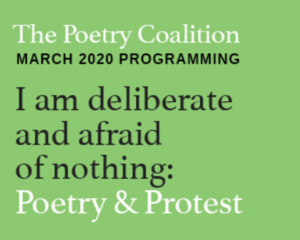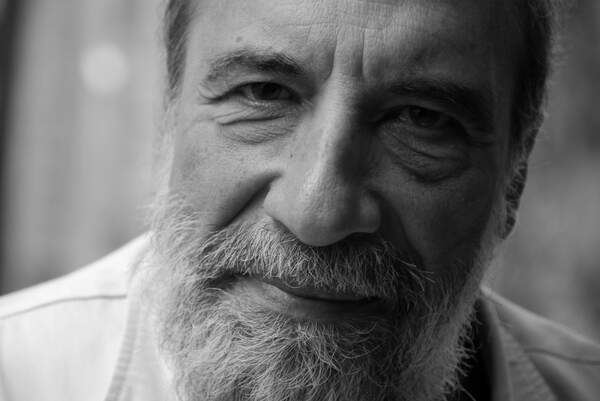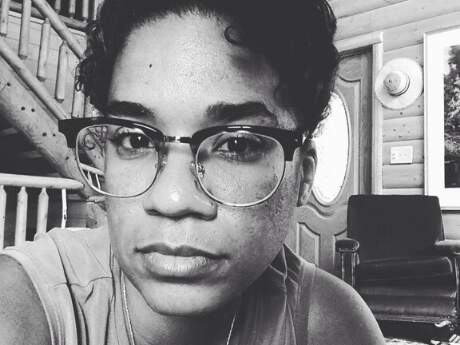Poetry & Protest
Poetry & Protest: 12 Books

I’ve always loved—though a bit mixed about weddings in general—the idea that in dressing for a marriage one must wear something old, something new, something borrowed, and something blue. My disability-focused reading list for a new year—with thanks to the wonderful folks at the Poetry Coalition for asking—contains a little of all these things, including some prose.
One of my ideas about social chance, which I have (alas!) never managed to prove, is that social movements should on some level be about increasing joy. It is hard to think of joy sometimes as a political force, but so much of what oppresses us—homophobia, transphobia, racism, sexism, ableism is about fear and a will to punish, aimed at those somehow conceived as "other." This invariably results in, among other things, less joy to the world—less acceptance, less openness, less beauty or wonder.
Beauty can be a charged word. As a person with a visible physical disability I believe that, in addition to access and inclusion, one of our tasks is to remake the map of where beauty is seen or how it is defined. I love the idea of a world where there are as many forms of beauty perceived and recognized as there are bodies in the world.
Beauty is also something we seek in art, and one thing about this list I’m pleased about is that I think every single book on it is both beautiful and capable of delivering that charge of energy that comes from a thing seen or expressed purely, which stimulates, in turn, joy for the reader. Our joy, in other words, is related to our sense of truth, and, in a time when the Right in our country is rising with its anti-joy and anti-rights mandates, protesting in the cause of joy seems more urgent than ever. We are living in a time when the Nihilists among us tend to be among the Right—they are the ones who wish to dismantle, tear apart, unmake, stifle. And so this list of books beautifully made, will, I hope, serve as a reminder of the power of our protest as creative force in which one of the things we are making is a vision of our many worlds as they might be.
* * *
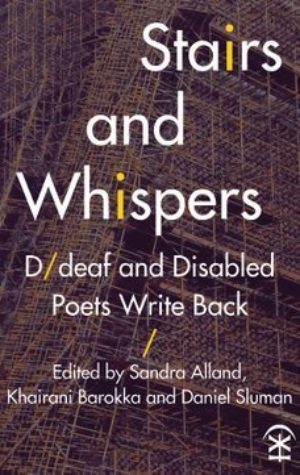
Stairs and Whispers edited by Sandra Alland, Khairani Barokka, & Daniel Sluman (Nine Arches Press, 2017)
This anthology from the UK features amazing poets and also makes tremendous innovations in leveraging technologies new and old to be truly accessible.
* * *
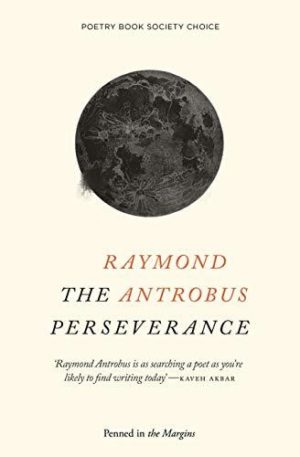
The Perseverance by Raymond Antrobus (Penned in the Margins, 2018)
Antrobus is a poet of such rich linguistic gifts, who traces a world charged with myth, gods, and gratitude as the poet considers disability, deafness, displacement, exile and the surprising tenderness of what binds us together.
* * *
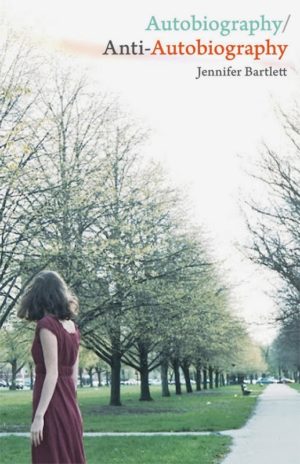
Autobiography/Anti-Autobiography by Jennifer Bartlett (theenk Books, 2014)
I love all Jennifer Bartlett’s work, but as poet Andrea Baker notes, “Anti-Autobiography tests the meaning of embodiment by removing it….Questions, lists, blocks of prose, dates and addresses, form a perfect, supportive tension on which the self, embodied or not, floats.”
* * *
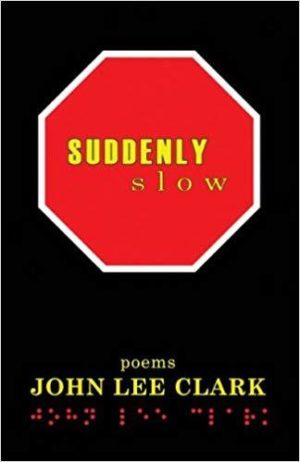
Suddenly Slow by John Lee Clark (Handtype Press, 2008)
I was torn what to put in by the brilliant John Lee Clark—his book of essays (Where I Stand) also lives on my night table, but Suddenly Slow is a book I have lived with and learned from for many years, a chapbook that truly expands in the mind.
* * *
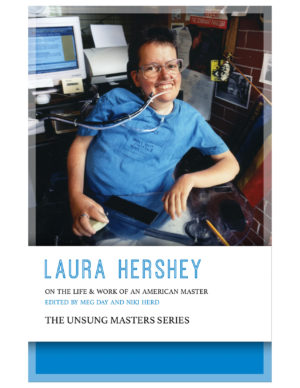
Laura Hershey: On the Life & Work of an American Master edited by Meg Day & Niki Herd (Pleiades Press, 2019)
Jim Ferris calls Laura Hershey’s poems “lithe and luminous,” and they are, as is her prose. Meg Day and Niki Herd deserve a huge cheer for their lithe and luminous editing of this essential volume that gives Hershey her due.
* * *
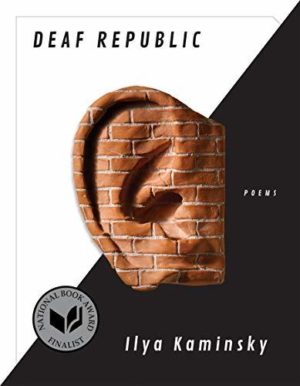
Deaf Republic by Ilya Kaminsky (Graywolf, 2019)
I could read this book a thousand times and not get to the bottom of it, nor wearied of the spells it casts—fable, lyric, parable, passion play, philosophical inquiry—Deaf Republic is an essential text for our time.
* * *
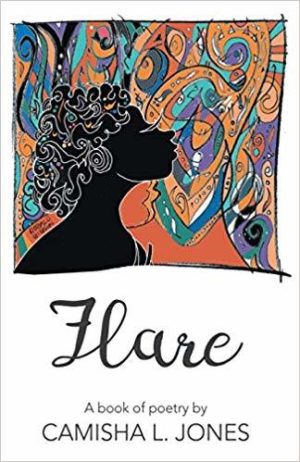
Flare by Camisha L. Jones (Finishing Line Press, 2017)
Flare traces the negotiation of self and world, identity, race, disability in a fearless and freshly inspiring way. I admire so much Camisha Jone’s meticulous yet buoyant lyricism, which is stubborn and ever-faithful to lived experience.
* * *
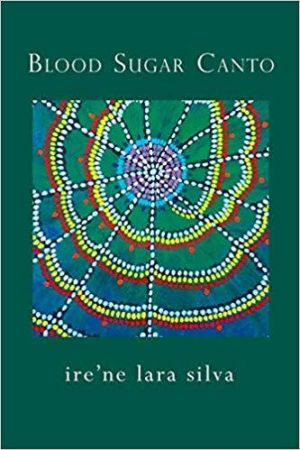
Blood Sugar Canto, Ire’ne Lara Silva (Saddle Rose Press, 2016)
Silva’s hymn to the body through her experience of type 2 diabetes considers culture, race, class, illness, disability and the complicity of our culture in wounding and estranging; yet her song of these things becomes a kind of ferocious healing.
* * *
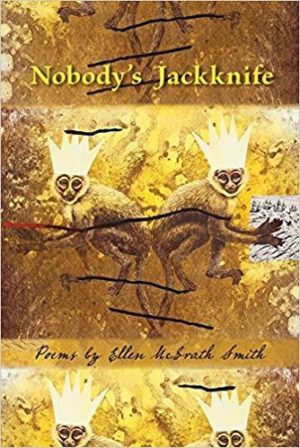
Nobody’s Jackknife by Ellen McGrath Smith (West End Press, 2016)
This is a book you want to press into someone’s hands and say “read,” because it has so much to say about being a woman, a person with a disability, listening, not listening, the mystery and becoming of a self.
* * *
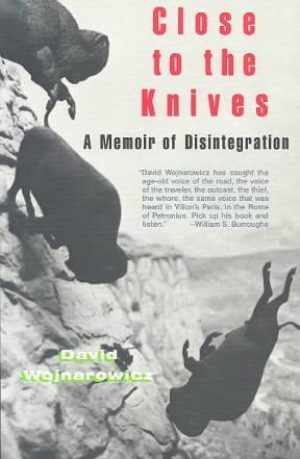
Close to the Knives: A Memoir of Disintegration by David Wojnarowicz (Open Road Media, 2014)
A collection of essays which read like fierce, outraged, hallucinatory poems by the artist, filmmaker, writer photographer, who died of AIDs in 1992. I picked this up again recently and it feels ever more relevant, necessary and beautiful.
* * *
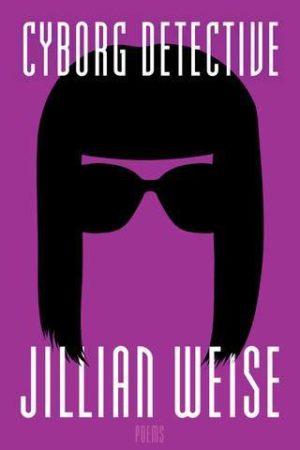
Cyborg Detective, Jillian Weise (BOA, 2018)
Imagine the best noir film featuring a disability heroine on steroids. Fearless, funny, caustic, confident, Weise stands down the literary canon and calls out the erasure, fetishization, commodification and appropriation of the disabled body while speaking to a cyborg future. As Anthony Madrid writes in Rhino “Not once does she (Weise) lose her cool.
* * *
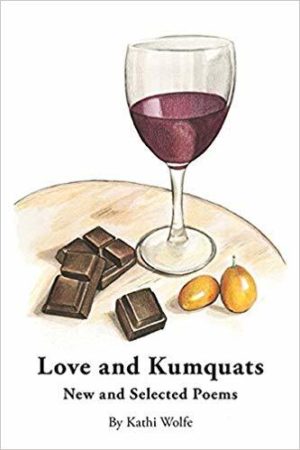
Love and Kumquats by Kathi Wolfe (BrickHouse Books, 2019)
Hilarious, often, witty, always, Wolfe is also keenly attuned to the eddies of loss and longing; this is a book that makes you laugh out loud at the same time as you’re getting more than a little broken-hearted. Wolfe is a poet who can drop you off a cliff when you least expect it.

